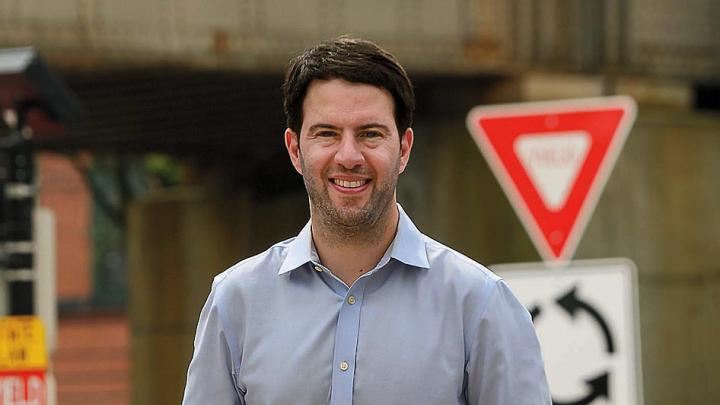Nicholas Stephanopoulos was a second-year law student at Yale when the Supreme Court ruled—unsatisfactorily, he believed—on the 2004 Pennsylvania gerrymandering case Vieth v. Jubelirer. Splitting 5-4, the justices upheld the state’s partisan Congressional districts and left unresolved the question of whether the courts should have a say in political gerrymandering. For Stephanopoulos, now Kirkland & Ellis professor of law, the case was a game-changer: election law, democratic theory, and the American electoral system came to dominate his career. Gerrymandering is a particular fixation—he’s best known for developing a quantitative measure of partisan bias in districting that became the basis of lawsuits in North Carolina and Wisconsin, which he helped litigate all the way to the Supreme Court (where both ultimately lost). Stephanopoulos ’01, who studied government at the College, is writing a book about the concept of alignment: how closely government policies and actions reflect voters’ wishes. “Alignment is at the heart of what it means to be a real democracy,” he says, and the “most powerful tools” working against it include voter suppression (Stephanopoulos has sharply criticized recent Supreme Court decisions undermining the Voting Rights Act), money in politics, and, of course, gerrymandering. These are obsessions he shares with his wife, Ruth Greenwood, visiting assistant clinical professor and director of Harvard’s new Election Law Clinic. The cake at their 2015 wedding featured a blue-icing version of Illinois’s earmuff-shaped 4th Congressional district, with boundaries drawn to give Latino voters greater representation (not all “‘funny-looking’ districts are bad,” he notes). For election-law scholars like them, the past year has been riveting—and worrying: following the 2020 census, every state is set to redraw its district maps next year, “and I think we’re about to see some of the most aggressive gerrymanders in American history.”
Nicholas Stephanopoulos

Nicholas StephanopoulosPhotograph by Jim Harrison
You might also like
Breaking Bread
Alexander Heffner ’12 plumbs the state of democracy.
Reading the Winds
Thai sailor Sophia Montgomery competes in the Olympics.
Chinese Trade Dragons
How Will China’s Rapid Growth in the Clean Technology Industry Reshape U.S.-China Policy?
Most popular
More to explore
Harvard Philosophy Professor Alison Simmons on "Being a Minded Thing"
A philosopher on perception, the canon, and being “a minded thing”







